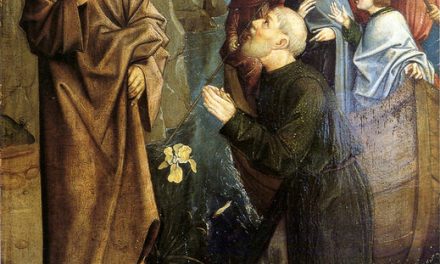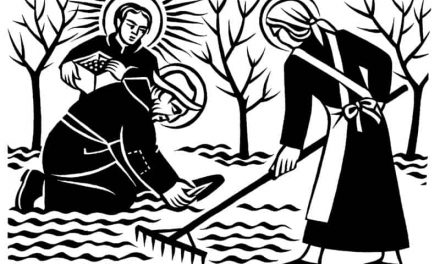I had not planned on doing anything special on 9/11, but the substitute organist at the 5pm mass I cantored last night mentioned that she was playing at an interfaith service in Baker Park, Frederick’s splendid “island oasis,” and since it is only a couple blocks from my house, I decided I would go over there. She promised that there was “nothing militaristic or anything” – that it would be about peace.
And remarkably, it was. It was evidently the official city commemoration of the event. Indeed, everyone was there – the (moderate Republican) mayor of our city, the police chief, religious leaders from all the congregations, including the Islamic Center of Frederick. A few hundred people gathered at the bandshell, singing hymns of peace, and listening to a sequence of the Jewish rabbi read from Deuteronomy about true justice for all, a Protestant minister read Jesus’ beatitudes, and the child of the Islamic leader chant a section of the Qu’ran in Arabic, followed by a heartfelt reflection from the father about how the Muslim community had been dealt with fairly and justly, without prejudice, and how he hoped it would continue. The magnificent Baker Park bell tower played a solemn tribute. The mayor offered a prayer. A retired Marine talked about going back to Afghanistan to help women. The whole thing concluded with a rousing singing of “Let There Be Peace on Earth,” and a sign of peace passed around all present.
Frederick is not Berkeley or anything. So I was quite amazed at this almost-Rockwell-esque tableau, played out in a lovely, classic American civil space. We are all too aware of how 9/11 can and does serve as a cover for military might and for fanning the flames of anti-Muslim prejudice. We are all too aware of how “America” can be appropriated as a slogan for a project of arrogance. But there is another America, too, one that can respond to violence with exactly this kind of classic “civil religion” and civic hope. This America can take 9/11 and say, we will not let violence have the last word, but we will praise those who mourn and make peace and seek righteousness. And this America need not just appear among extreme sects, but in the ordinary civic celebrations of Frederick, Maryland. I am (I hope) under no illusions about what impact on our national politics such little signs might have, or even whether it is naïve to describe it. But surely it is best to hold something like this up and honor it, when it happens, and imagine that such potential still exists in our midst. It is not our eschatological hope. But it is a lot better than many alternative signs that could have memorialized the many who died on that day.





David, Thanks for your reflection and for giving me some hope that other communities dealt with the importance of today’s memorial with some theological depth and openness. At my parish today, the posted song selection for the recessional was “Let There Be Peace on Earth.” I had my book opened and ready (after seeing the page number displayed on the board). Unfortunately, somebody thought it would be a good idea to do something else… and the choral director led the congregation in “God Bless America.” After today’s readings and a focus on the challenge of forgiveness, I was disappointed and frustrated. What a lost opportunity to expand the discourse and reflection beyond nationalism. I have been trying to sing “Let There Be Peace on Earth” to myself during the day today. But I remain frustrated. I agree with you that it is important to hold up and honor those transformative experiences that point towards a more hopeful discourse.